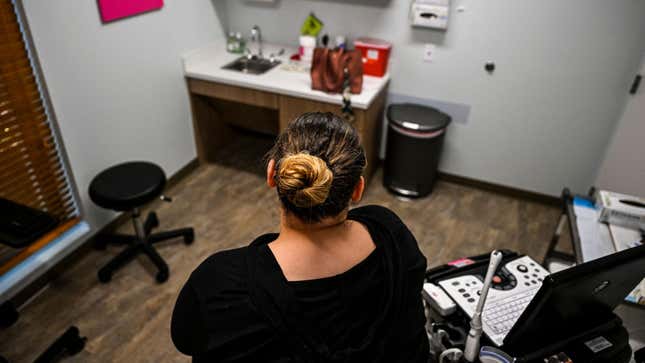The South Is Being Squeezed Dry When It Comes to Abortion Access
North Carolina, South Carolina, and Florida are only remaining states in the region where there is any kind of access—and even that is under threat.
AbortionPolitics

The Southern states are in crisis.
On Wednesday, North Carolina state Rep. Keith Kidwell introduced a total abortion ban with one mealy-mouthed exception into the state’s House. It’s a draconian, three-page bill that posits that life begins at fertilization. It’s also part of a growing trend of state lawmakers squeezing the last little bits of abortion access out of the South.
Looking at a map of abortion access in America is always, at best, a sigh-inducing endeavor. Since Roe v. Wade was overturned in June, the number of abortion clinics has dwindled. Some clinics have left the states where they’d operated for years, with the goal of being able to continue to provide care elsewhere. Nowhere is this more evident than the South.
Let’s consider each state in the region, from west to east:
-

-

-

-

-

-

-

-

-

-

-

-

-

-

-

-

-

-

-

-

-

-

-

-

-

-

-

-

-

-

-

-

-

-

-

-

-

-

-

-








































